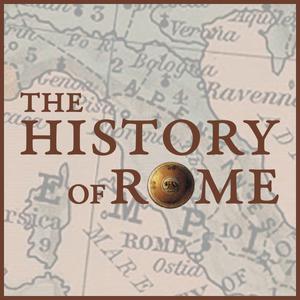
Natural History Volume 3, The by PLINY THE ELDER
LibriVox
Naturalis Historia (Latin for "Natural History") is an encyclopedia published circa AD 77-79 by Pliny the Elder. It is one of the largest single works to have survived from the Roman empire to the modern day and purports to cover the entire field of ancient knowledge, based on the best authorities available to Pliny. The work became a model for all later encyclopedias in terms of the breadth of subject matter examined, the need to reference original authors, and a comprehensive index list of the contents. The scheme of his great work is vast and comprehensive, being nothing short of an encyclopedia of learning and of art so far as they are connected with nature or draw their materials from nature. The work divides neatly into the organic world of plants and animals, and the realm of inorganic matter, although there are frequent digressions in each section. He is especially interested in not just describing the occurrence of plants, animals and insects, but also their exploitation (or a
- 15 minutes 17 seconds01 - Book 11, Chapters 1-9 : <i>The extreme smallness of insects; whether insects respire and whether they have blood; the bodies of insects; bees; the order displayed in the work of bees(..); persons who have made bees their study</i>
- 17 minutes 42 seconds15 - Book 13, Chapters 6 - 9: <i>The palm tree; the nature of the palm tree; how the palm tree is planted; the different varieties of palm trees and their characteristics</i>
- 32 minutes 55 seconds25 - Book 15, Chapters 19 - 26: <i> Twenty-nine varieties of the fig; historical anecdotes connected with the fig; caprification; three varieties of the medlar; four varieties of the sorb; nine varieties of the nut; eighteen varieties of the chestnut; the carob</i>
- 29 minutes 9 seconds24 - Book 15, Chapters 9 - 18: <i>The various kinds of fruit-trees and their natures; four varieties of pine nuts; the quince; six varieties of the peach; twelve kinds of plums; the peach; thirty different kinds of pomes; the fruits that have been most recently introduced; forty-one varieties of the pear; the mode of keeping various fruits and grapes</i>
- 27 minutes 25 seconds23 - Book 15, Chapters 1 - 8: <i>The olive; the nature of the olive and of the new olive oil; olive oil: the countries in which it is produced and its various qualities; fifteen varieties of olives; the nature of olive oil; the culture of the olive: its mode of preservation; the method of making olive oil; forty-eight varieties of artificial oils; amurca</i>
- 25 minutes 56 seconds22 - Book 14, Chapters 24 - 29: <i> How must is usually prepared; pitch and resin; vinegar; wine vessels; wine cellars; drunkenness; liquors with the strength of wine made from water and corn; authors quoted</i>
- 29 minutes 22 seconds21 - Book 14, Chapters 10 - 23: <i> Seven kinds of salted wines; eighteen varieties of sweet wines; at what period generous wines were first commonly made in Italy; the inspection of wine ordered by king Romulus; wines drunk by the ancient Romans; some remarkable facts connected with wine-lofts; the Opimian wine; at what period four kinds of wine were first served at table; the uses of the wild vine; sixty-six varieties of artificial wine; hydromeli or melicraton; twelve kinds of wines with miraculous properties; what wines it is not lawful to use in the sacred rites</i>
- 25 minutes 12 seconds20 - Book 14, Chapters 5 - 9: <i>Remarkable facts connected with the culture of the vine; the most ancient wines; the nature of wines; fifty kinds of generous wines; thirty-eight varieties of foreign wines</i>
- 35 minutes 11 seconds19 - Book 14, Chapters 1 - 4: <i>The nature of the vine; its mode of fructification; the nature of the grape and the cultivation of the vine; ninety-one varieties of the vine</i>
- 23 minutes 41 seconds18 - Book 13, Chapters 35 - 52: <i> The trees of Asia and Greece; the tragion; tragacanthe; the tragos or scorpio; the euonymos; the tree called eon; (...) the royal thorn; the trees and shrubs of the Mediterranean; the sea bryon; plants of the red sea; plants of the Indian sea; the plants of the Troglodytic sea; authors quoted</i>
- 16 minutes 25 seconds17 - Book 13, Chapters 28 - 34: <i>The trees of Aethiopia; the trees of Mount Atlas; the citrus and the tables made of the wood there of; the points that are desirable or otherwise in these tables; the citron-tree; the lotus; the trees of Cyrenaica; the paliurus; nine varieties of the Punic apple; balaustium</i>
- More Episodes? Get the App
Your feedback is valuable to us. Should you encounter any bugs, glitches, lack of functionality or other problems, please email us on [email protected] or join Moon.FM Telegram Group where you can talk directly to the dev team who are happy to answer any queries.
 The History of Rome
The History of Rome
 Stuff You Missed in History Class
Stuff You Missed in History Class
 Natural History Volume 1, The by PLINY THE ELDER
Natural History Volume 1, The by PLINY THE ELDER
 Natural History Volume 2, The by PLINY THE ELDER
Natural History Volume 2, The by PLINY THE ELDER